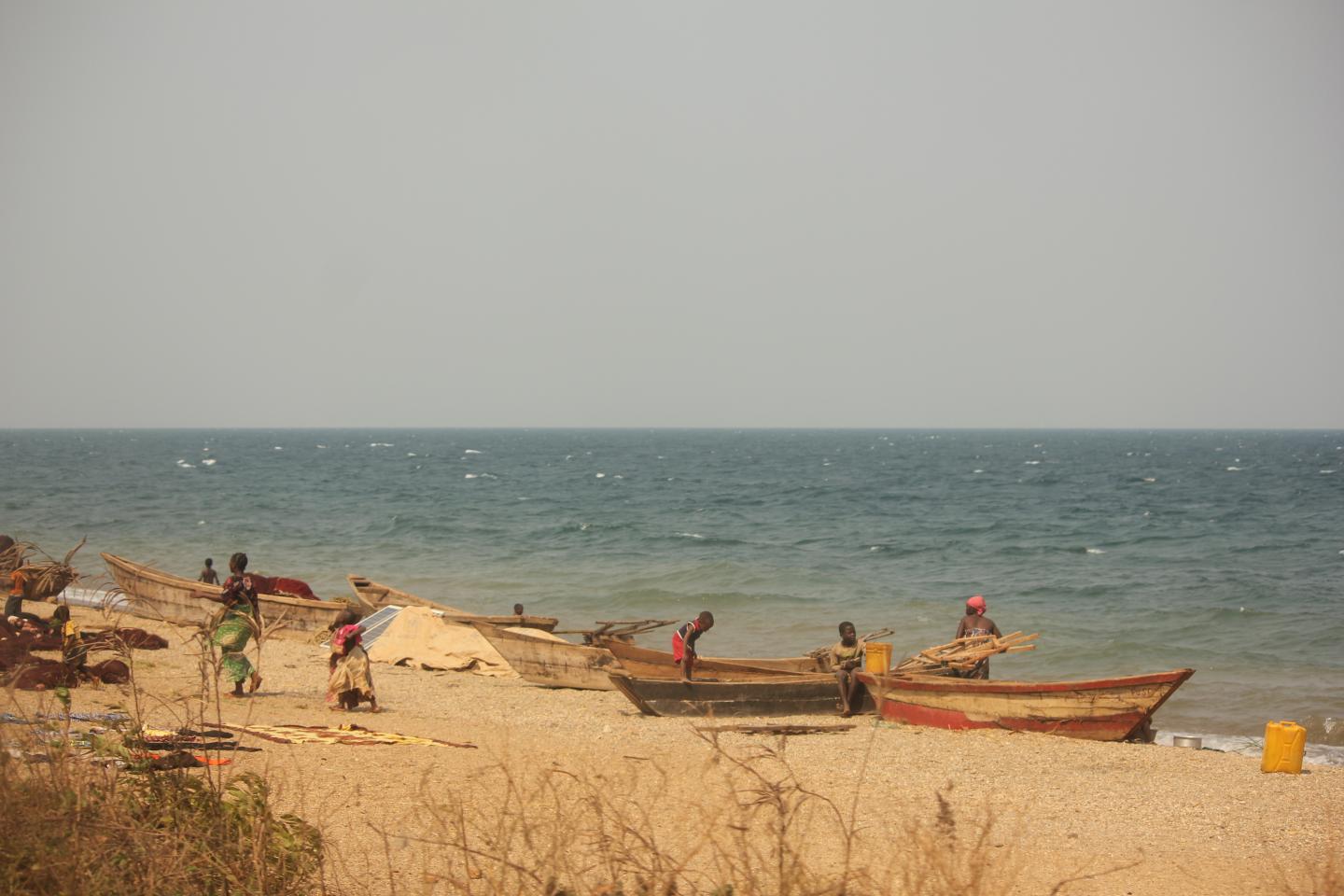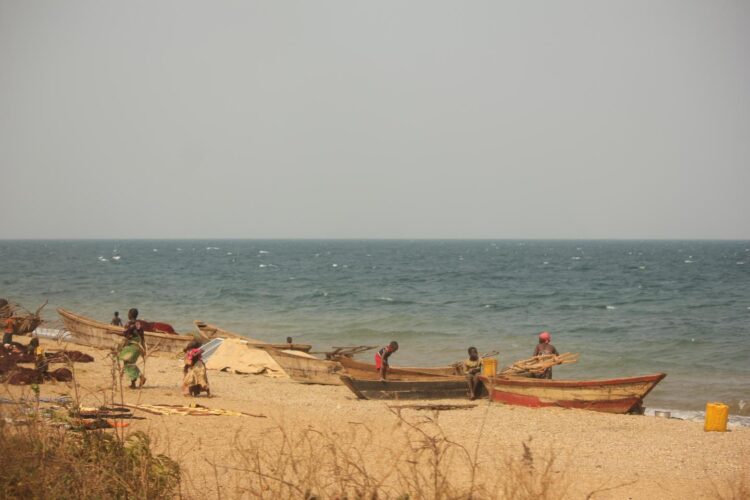
Credit: © Charlotte Huyghe
Fishermen working on Lake Tanganyika in eastern Congo experience a lack of safety and want better enforcement of existing regulations. They also report a decline in the lake’s fish stocks. These are some of the findings of a large international study led by KU Leuven (Belgium) based on 1018 interviews with stakeholders in the area. The study was published in the Journal of Great Lakes Research.
Lake Tanganyika is the second largest freshwater lake in the world and is located in four countries: the Democratic Republic of the Congo, Tanzania, Burundi, and Zambia. The fisheries on the lake play a vital role in providing food to eastern Congo, one of the poorest regions in the world.
Exploitation of natural resources and pollution put the fish stocks under pressure. Researchers now show that fishermen experience a lack of safety on the lake and there is a reported decline in fishery yield. Fishermen and other stakeholders ask for protection, access to safety gear, and better enforcement of existing fisheries legislation. The team consisted of researchers from, among others, the Royal Belgian Institute of Natural Sciences, the Belgian Royal Museum of Central Africa and the Congolese Centre de Recherche en Hydrobiologie (CRH).
Outdated regulations
Fishermen working on Lake Tanganyika mainly catch three species: perch and two species of sardines. The fish are sold on the beaches to saleswomen, who then sell them on markets. Regulation of fishing is limited. Government employees collect catch statistics on the beaches and check if any illegal materials, such as beach seines or mosquito nets, are being used. To ensure that fish stocks are not depleted, good management is indispensable. However, the current regulations are four decades old, and no longer relevant for the situation today, since the number of fishermen has increased exponentially. In order to adapt the regulations to the needs of fisheries stakeholders, it is important to have insight into their opinions and views.
The researchers conducted and analysed 1018 interviews with fishermen, salespeople, government employees and other stakeholders of the fisheries. Fishermen, salespeople, and officials indicate that the catches of the three target species are decreasing and that fish are also getting smaller over time. These could be indications of overfishing of the system. “However, the study participants did not attribute this to overfishing or overpopulation”, says Maarten Van Steenberge, who coordinated the study. As a result, fishermen and others are not in favor of stricter regulations, as they do not see the benefit.
Illegal practices
A stricter fisheries policy has little chance of succeeding if the local population does not support it. “We do notice that although the fishermen are not open to tightening the regulations, they do demand a stricter application of the existing rules, for example to prevent unfair competition from fishermen who fish with illegal materials”, says Pascal Masilya Mulungula, researcher at CRH in Uvira, Congo.
Illegal fishing practices like catching juvenile fish near the shore with mosquito nets, has detrimental effects on the stocks. However, these illegal fishing practices are mostly carried out by impoverished women, who lack any other source of food and income, and this income to support their families. Strict application of the rules, which forbid this type of fishing, should thus go together with alternatives sources of income for these people.
Unsafe
The interviews with fishermen also revealed that their main concern is a lack of security. “Fishermen report dangerous conditions on the lake, such as high waves and strong winds. They are also regularly attacked by gangs or extorted by soldiers or security officers”, says Els De Keyzer, who carried out the research. The fishermen ask for more security equipment, such as lifejackets, and strict action against gangs and corruption.
This was the first time that stakeholders of the Lake Tanganyika fisheries were interviewed about these issues on such big scale, providing unique insight into the problems and needs related to these fisheries. The authors handed over their findings to the local administration in a policy brief. “We hope that this study will be used as a starting point for policymakers who want to adapt the regulations to current conditions. Since the stocks are shared between four countries, future research should focus on how much willingness there is for collaboration between stakeholders around the lake,” concludes De Keyzer.
###
More information
The study “Local perceptions on the state of the pelagic fisheries and fisheries management in Uvira, Lake Tanganyika, DR Congo” by Els De Keyzer et al. was published in the Journal of Great Lakes Research and can be requested from the authors.
Media Contact
Els De Keyzer
[email protected]
Original Source
https:/
Related Journal Article
http://dx.





